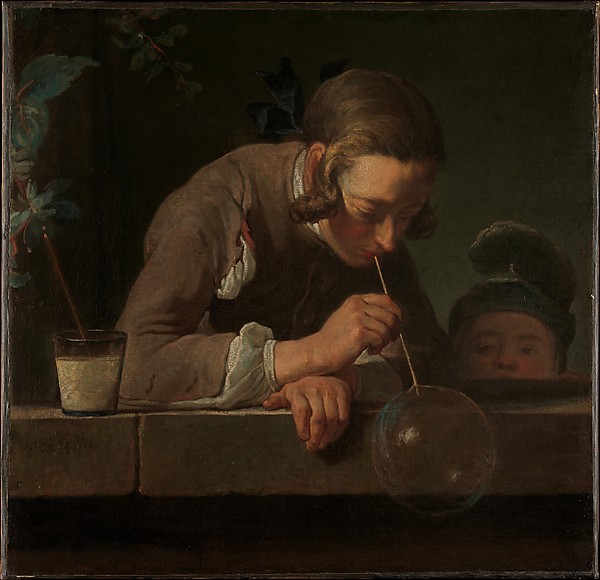
Jean Siméon Chardin (French, Paris 1699–1779 Paris).
The Metropolitan Museum of Art, New York.
When you graduate to the knowledge that there’s nothing to give up in order to get what you want, things start to look a bit different.
“You get what you want,” said the artist Agnes Martin. So we ask ourselves “what do I want?” Or as my mindfulness teacher asked us during our final class, “what are you a disciple to?”
What we want has to contend with what we desire. Undisciplined desire clouds our vision and makes us mistake the object of desire for the source of our want. But somehow, if we’re lucky, we receive an intimation of a way to shift. This intimation comes at a price, which is paid with practice.
Scholars tend to focus on the questions implied by the subject of their research. In so doing, their own activity represents the asking of a higher level question, which opens to a new field of inquiry. Nothing needs to be contested. The field naturally opens in proportion to the profundity of the questions.
The abundance of answers that’s a characteristic of our time makes it seem as if there’s nothing left to ask. Nevertheless, there’s the terse fact of our existence and our perennial need to be guided by questions. “Who am I?” is the same question regardless of who asks it. But the field it holds open when I ask it in practice, is not the same as when you ask it.
Are we brave enough to hold these superficially innocuous questions? Am I doing the right thing? How do I feel? Where am I? Can I forgive? Where should I live? How should I love?
Our cultural bias toward hype interrupts our ability to notice the emergence of answers, the most meaningful of which are silent transformations. The proper holding of profound questions helps answers to emerge. I suspect that these answers are weak and fragile when they emerge and require nurturing. Nurturing requires filtering. Our environments act as filters for better or worse.
Resting in the breath is a congenial environment for the emergence of fundamental answers to the deepest questions. In the Parmenides, Plato says that there are two types of motion, moving in place and changing in nature. In other words, we may move externally by changing our environment or we can do so internally by sounding the depths of our inner environment.
Often others show us their pain in the form of not knowing and not wanting to know, but by having ready made answers to trade for our love. This is a way of moving in place, or a signal that the questioning process has not begun in earnest. Even so, they share our breath and they are our teachers. A disagreement held as a question gives shape to the intangible field where our true selves reside, where all is one.